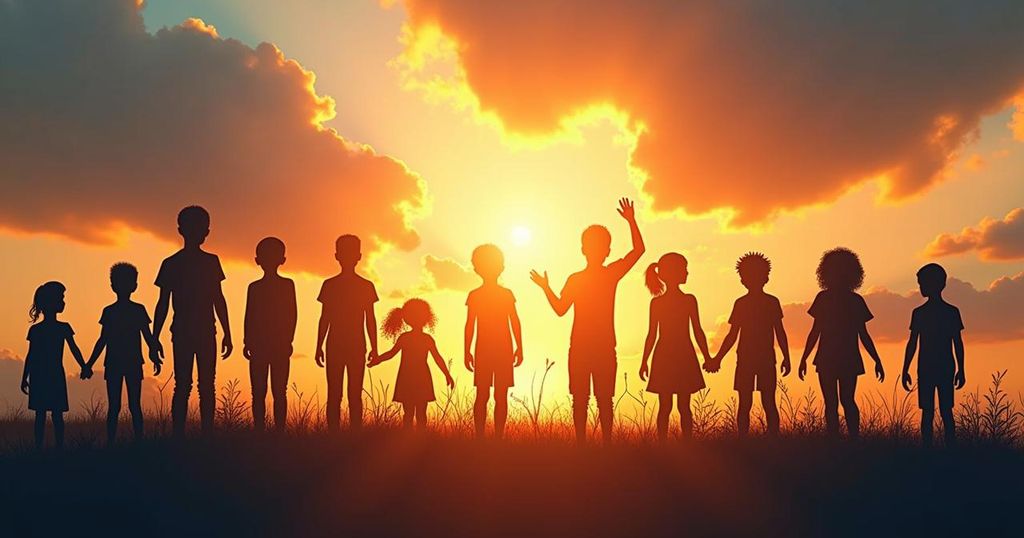Aisha O’Neil, inspired by her upbringing in Zion National Park, recognized a lack of climate education and founded a statewide group, Good Trouble, advocating for climate literacy in Colorado. Subsequently, legislation for a seal of climate literacy passed, promoting comprehensive understanding of climate and encouraging student-led initiatives for further educational reform. The U.S. Global Change Research Program emphasizes the importance of climate literacy principles encompassing science, equity, adaptation, and hope, calling for solutions-oriented education that empowers the youth.
Aisha O’Neil’s formative years spent at Zion National Park cultivated her love for the environment, yet it did not provide her with adequate education on climate change. Faced with alarming reports of environmental catastrophes, she initiated a statewide climate action group, Good Trouble, during her senior year of high school in Colorado. This group successfully advocated for legislation establishing a ‘seal of climate literacy’ for high school graduates in Colorado. The core belief held by O’Neil is that an education devoid of climate change considerations is fundamentally incomplete, as it fails to prepare students for the reality they will inherit. The importance of climate literacy is underscored by global organizations, including the United Nations, recognizing education as a pivotal mechanism in combating the climate crisis. The transition to sustainable energy and infrastructure necessitates an informed workforce, adept in climate adaptation and mitigation strategies. Currently, however, only a limited number of states offer comprehensive climate education; most relevant instruction is confined to science classes, lacking interdisciplinary approaches that encompass social justice and practical solutions. In an effort to promote extensive climate education, Colorado’s newly implemented seal allows graduates to showcase their climate knowledge obtained through coursework and extracurricular activities. Additionally, a comprehensive guide titled “Climate Literacy: Essential Principles for Understanding and Addressing Climate Change,” developed by the U.S. Global Change Research Program, outlines eight fundamental principles of climate literacy. Key principles include understanding how climate science functions; recognizing the impact of greenhouse gases; acknowledging the causes of climate changes such as fossil fuel combustion; and addressing the urgent call for equity and adaptation strategies. Notably, the guide advocates for a hopeful and urgent response to the climate crisis, suggesting that with accelerated and equitable action, a sustainable future is achievable. Aisha O’Neil reflects the sentiments of many young individuals today, expressing that education should empower them with solutions rather than instill fear about environmental issues. Her ongoing advocacy emphasizes the need for educational systems to incorporate climate knowledge beyond solely scientific aspects, integrating discussions on social justice and policy implications. Currently, efforts are underway in various regions, including a grassroots student-led initiative advocating for climate literacy standards in Colorado. O’Neil and her peers aspire to foster a learning environment where climate challenges are approached with understanding and agency, enabling students to engage proactively rather than helplessly amid the climate crisis.
The rising concern regarding climate change has prompted educational leaders and policymakers to emphasize the necessity of climate literacy. This entails not only understanding scientific aspects but also recognizing the interconnectedness of climate issues with social justice, policy implications, and community resilience. Aisha O’Neil’s journey reflects a growing movement among youth, advocating for an educational model that actively addresses climate challenges and equips future generations with the knowledge and skills required to navigate and mitigate the effects of a changing climate. As global and local initiatives work towards integrating climate education across various learning environments, the ambition remains to cultivate informed and proactive citizens capable of contributing to sustainable solutions.
The efforts initiated by Aisha O’Neil and her advocacy for a seal of climate literacy represent a critical step towards enriching educational curricula with comprehensive climate education. By integrating principles of climate literacy that encompass scientific understanding, social justice, and practical solutions, students will be better equipped to engage with climate issues in a constructive manner. The tide is shifting in educational domains, and with the implementation of comprehensive climate resources and interdisciplinary learning, there remains hope for a more informed and empowered generation, ready to tackle the pressing challenges of climate change. O’Neil’s vision for future education reflects a broader desire among youth for curricula that foster empowerment rather than fear, ultimately advocating for a narrative of progress over doom.
Original Source: hechingerreport.org







